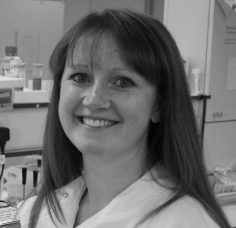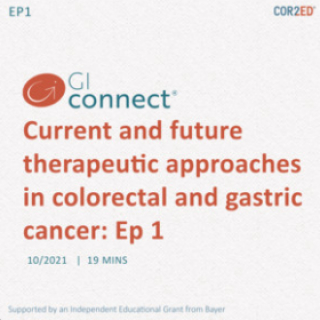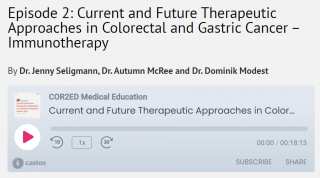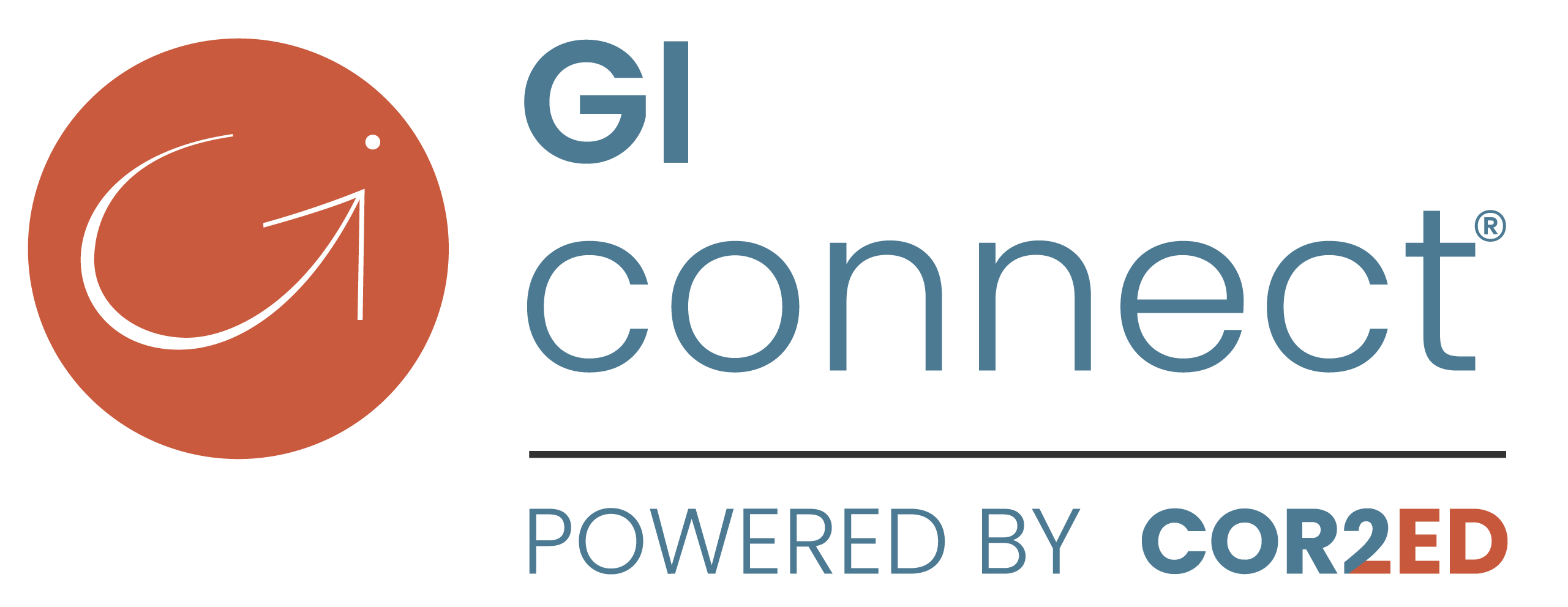Autumn McRee
Hello, and welcome to the first GI CONNECT podcast series, where we are discussing targeted and immunotherapy options for patients with colorectal and gastric cancer, this is the third episode in our series where we're going to move from some of the more defined treatment options for these patients to what we feel are some of the future developments in terms of targeted agents in immunotherapy for colorectal and gastric cancer.
My name is Dr Autumn McRee, I’m a medical oncologist from the University of North Carolina in Chapel Hill in the United States, and I am joined today by Dr Dominik Modest from the Charité University of Medicine in Germany and Dr Jenny Seligmann from the University of Leeds, in the United Kingdom, thank you for joining me.
I think, certainly in our first two episodes we've spent a lot of time really going through some of the data that has been practice-changing for these patients with clinical trials that have shown ways to incorporate novel targeted therapies and immunotherapies but most of these trials have been done in patients with advanced disease, most of these have been done in patients with stage IV disease or unresectable disease and I’m curious what we think the role is in immunotherapy for patients with earlier stage disease, who are being treated with curative disease. So I’ll start with you Jenny: talking about whether we should be thinking about immunotherapy options in the neoadjuvant setting for patients who have MSI-high colon cancer?
Jenny Seligmann
Sure, and I think this is a really, really exciting development and a really great opportunity for us and our patients in the future. So the neoadjuvant setting itself in colorectal cancer is quite new so we've just seen data from the FOXTROT trial, showing that you can move six weeks of chemotherapy ahead of surgery, and it's safe to do that and it resulted in improved disease-free survival. But important lessons learned, which are important for immunotherapy is that you can have an opportunity to assess the tumour both pre-treatment and post-treatment, which is of course something that you, you can't do in the advanced setting normally. So that's a fantastic opportunity for understanding biology, to understand response and resistance, and also FOXTROT showed us that pathological response also correlates really well with longer term outcomes so, it gives us an early signal of what, how the patients are doing and whether you perhaps need to change practice post-operative in the adjuvant setting.
So, the most exciting data to discuss is from the NICHE trial, so that was quite a small study but it looked at giving one dose of Ipilimumab and two doses of NIVO prior to surgery, and what, and these were in patients who both deficient mismatch repair patients and proficient mismatch repair patients. And what they reported was really exciting, I mean, first of all, we saw 100% pathological response within the deficient mismatch repair group, which is spectacular in all of our studies of colorectal cancer, and also they saw responses in the proficient mismatch repair group which is, which is also really interesting.
So we obviously, they reported, I think it was in 2020, the trial and we're awaiting longer term data, but of course it will be, it will be difficult to interpret the three-year DFS in a small group of patients, but this is a huge landmark change, in my opinion, and we really should be thinking about how we are treating these patients. Particularly as another key message from FOXTROT was that patients with deficient mismatch repair didn't have particularly good responses to neoadjuvant chemotherapy so novel treatment strategies are required.
Autumn McRee
It almost really begs the question to, you know, it's one thing in a colon cancer patient who has the option of resection and being put back into continuity you know, I think this will be a really interesting question in rectal cancer, too, because, as we started to see more paradigms for organ preservation and how we should try to do more, total neo adjuvant therapy it really will be interesting to see if bringing immunotherapy into this realm for patients, given what we've seen in NICHE will allow them to have a better chance of a successful watch and wait strategy.
Jenny Seligmann
I agree with you, but I mean potentially, I am the real optimist in the room here, we may even get to a point where we're looking at watch and wait in colon cancer in these patients. I mean in rectal cancer there's not many patients that, who have deficient mismatch repair tumours. So, of course, as you go around the colon the prevalence becomes less so there's not a huge amount of patients, but there are certainly ongoing trials looking at immunotherapy radiation combinations as well in the neoadjuvant setting in an early rectal cancer, so, yeah it could be a complete paradigm shift.
Dominik Modest
I think it already is in terms of paradigm shift, because I think the NICHE trial has one merit which is reminding us of something that mankind knows, for more than hundred years, meaning that cancer is a lost battle of the immune system of the patient, and that metastasized disease is a greater lost battle than localised disease, meaning in turn localised cancers are, in the trends more immuno-gene - or at least to be better addressed with immunotherapy then metastatic disease, and I think this is what really has been put back to the top of the agenda by the NICHE trial because we had to accept that the MSI data that we have on colorectal cancer and metastatic disease as great as they are, could be even better in localised disease and that the fact that localised tumours might be responding much better to immunotherapy might be extendable to the MSS portion of the disease, so I think that really made us rethink the whole, the whole disease.
And I’m totally with both of you, if these data, which are really small; I mean we're making a big fuss, out of a non-randomised Phase 2 to trial without long-term observation, it's near to be so spectacular that we consider it kind of on the border, where we say, okay, we can just try that in clinical practice, and I think especially in rectal cancers, where we do a hell of intensity in terms of treatment to control the tumour locally, distantly, and to preserve the organs, so we did a lot of things, so I think that is the niche for the NICHE trial where these things will be implemented, first, and also as Jenny just pointed out, if neoadjuvant treatment algorithms are implemented in colon cancer, apart from the rectum, the MSI tumours and it will be very, very interesting and also exciting question whether we need to resect them, if they respond like that – and I’m too fearful at moment to give a clear answer to that, but if the NICHE is right that could be a question, just like in rectal cancer, where we have a certain option to control on the responses that could be arising.
Autumn McRee
Well, and I, as a reminder, you know, the MSI-high story in general started with a lot of really small clinical trials, so you know when you go back, and you look at when we were first starting to get an inkling that this was going to be a thing these were not large, randomised studies. You know, these were small sort of investigator-initiated trial, so I think this could be something that really develops into a practice changing paradigm. I think, where we know the data is a little bit more convincing is in the gastro oesophageal cancers, where we now have data that has really shown us how we can use immunotherapy for patients who have undergone resection. Dominik, do you feel like the paradigm there, is convincing enough to change practice?
Dominik Modest
From a European perspective, I would say, maybe, from the North American perspective I would possibly say yes. I think the trial that we’re referring to, it's absolutely convincing CheckMate 577, that's not the problem. I think it has been a point of discussion that the implementation of nivolumab as adjuvant therapy after the cross-protocols so chemo radiation and surgery is an algorithm that is not implemented everywhere in the world, I think some of the Asian countries just resect, and then think of adjuvant therapy in Europe, we have, I think, well implemented strategy of the neoadjuvant chemo. But I think that that's not the point, the point is that it is the first trial that has been addressing not completely responding patients at high risk in a very difficult to treat disease and having a huge effect, I would argue, huge effect for an adjuvant therapy. And it's not the first one, I think we have always, tried to find the parallelisms with other diseases. It reminds me of the PACIFIC trial implementing durvalumab in radiochemotherapy in lung cancers, and I think that's the paradigm that has been implemented for three to four years now, we're talking 2021. And I think that standard of care and we are now starting the same with gastro oesophageal cancers that have been failing to reach a complete remission which is really a high border to have, and resection with complete remission.
Autumn McRee
Yeah I would say, from a clinical perspective, you know, this is a real challenge when you get patients through chemo rads and then and you resect them, and you find that their response has been so dismal we haven't really had a good option, I think what was so interesting about CheckMate 577 is that we saw responses, regardless of histology which we haven't seen necessarily in the metastatic setting, so getting back to your previous point that maybe these adenocarcinomas that you know really don't always respond to immunotherapy in the metastatic setting can benefit when either, you know, we're just dealing with micro metastatic disease or you know the immune micro-environment must be different, it must be primed different in these earlier stage patients, so I think there's some really interesting things to learn there mechanistically but certainly in the clinical realm this has given us something to really help those patients, where the outcomes are going to be pretty poor after they have not really responded.
You know, I would just like to open this up now, and maybe go back to you Jenny in terms of all the things we've discussed over the three series that we've completed now. You know, what is, what is the most promising targets, specifically in colorectal cancer that aren't yet reported out or aren't yet approved but we're really excited to be out in clinical trials?
Jenny Seligmann
So, we’ve started to see some data eventually come through for KRAS mutant colorectal cancer, I mean this is, this has been a really hard journey. I mean we've talked about MSI-high, we’ve talked about HER2 we’ve talked about BRAF, but actually they represent quite small proportions of the overall patient population whereas about 40 to 45% of patients have a KRAS mutation and we don't have, and currently there's no targeted agent for the KRAS oncogene that’s approved.
So there has been some interesting studies and ongoing developments, there has been some disappointments, I mean we've seen some disappointing results RAF/MEK/ERK inhibition, PI 3-kinase/AKT/mTOR inhibition. We’ve seeing a lot of toxicity and quite disappointing results. One paper I’d like to point out is the New England Journal of Medicine paper on the Phase 1 trial of sotorasib. And so that's one of the first selected KRAS inhibitors which is selective for KRAS p.G-12C which only represents 1-3% of the whole population. And what we saw was in a heavily pre-treated population where we're seeing some partial responses, but a fair proportion, about two thirds of patients had disease control and median PFS of I think it was about four months. What we did see, however, is that there was less efficacy in the colorectal population than the non-small cell lung population, which makes you wonder whether the KRAS wasn't actually the only dominant driver whereas actually there's something going on in the Wnt or EGFR pathway and actually similar to the situation that we saw in BRAF that actually we’ll have to understand the biology a bit better, and build based upon biological rationale, I hope, but, as I understand there's quite a few ongoing trials looking at this agent in combination.
The other exciting development I suppose, in KRAS is understanding its role in the cell cycle. What we're getting increasing evidence of is that KRAS mutated tumours often have more genomic instability, which again could be another potential drug target, so, one example of this is - now I’m hoping I’m going to say this right, onvansertib and so that targets the polo-like Kinase-1 in the cell cycle and initial data from that again, suggested responses in combination with chemotherapy and bevacizumab and so that's an exciting ongoing development as well.
Autumn McRee
Yeah I have to say for GI medical oncologist, you know targeting KRAS is somewhat of the Holy Grail and I would say, from a clinical perspective treating these patients on these clinical trials for the G12C mutants has been, hands down one of the most satisfying things that I have done in the early phase drug development world recently, and it's not just about their responses, you know it's also about the tolerability of these drugs, I think the toxicity that we're seeing from the direct KRAS inhibitors seem to be actually quite favourable compared to what we've seen maybe with some of the MEK and the ERK inhibitors.
Jenny Seligmann
Yeah, is it so hard to deliver those as well, I agree.
Autumn McRee
Very challenging and not very successful. So, I mean we have a cadre of negative trials combining MEK and ERK with other targeted drugs, so I really think this represents a very promising pathway forward for these patients, and I think it'll be really interesting to see how we as oncologists build on that success to see how we're going to combine this with chemotherapy how we're going to pull these drugs up into earlier lines of therapy.
With that I will go ahead and summarise what we've learned today, this is the third and final episode of our podcast series looking at colorectal and gastric cancer in terms of targeted and immunotherapy and we've spent a bit of time today talking about how we can apply the lessons that we've learned in the metastatic setting to patients with earlier stage curable disease, both in the neo adjuvant setting with colon cancer and the adjuvant setting with gastric cancer and I think we ended on certainly a high note thinking about some of the promising ways that we're targeting KRAS, which is an oncogene that affects almost all of the GI cancers that we treat.
So, I wanted to thank Jenny and Dominik for joining me today, and we appreciate you listening. Thank you very much.












 Downloadable
Downloadable  5 MIN
5 MIN
 Jun 2025
Jun 2025 






